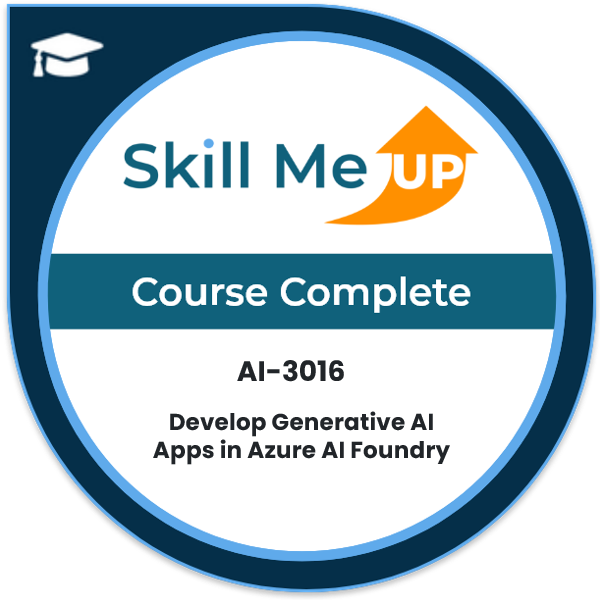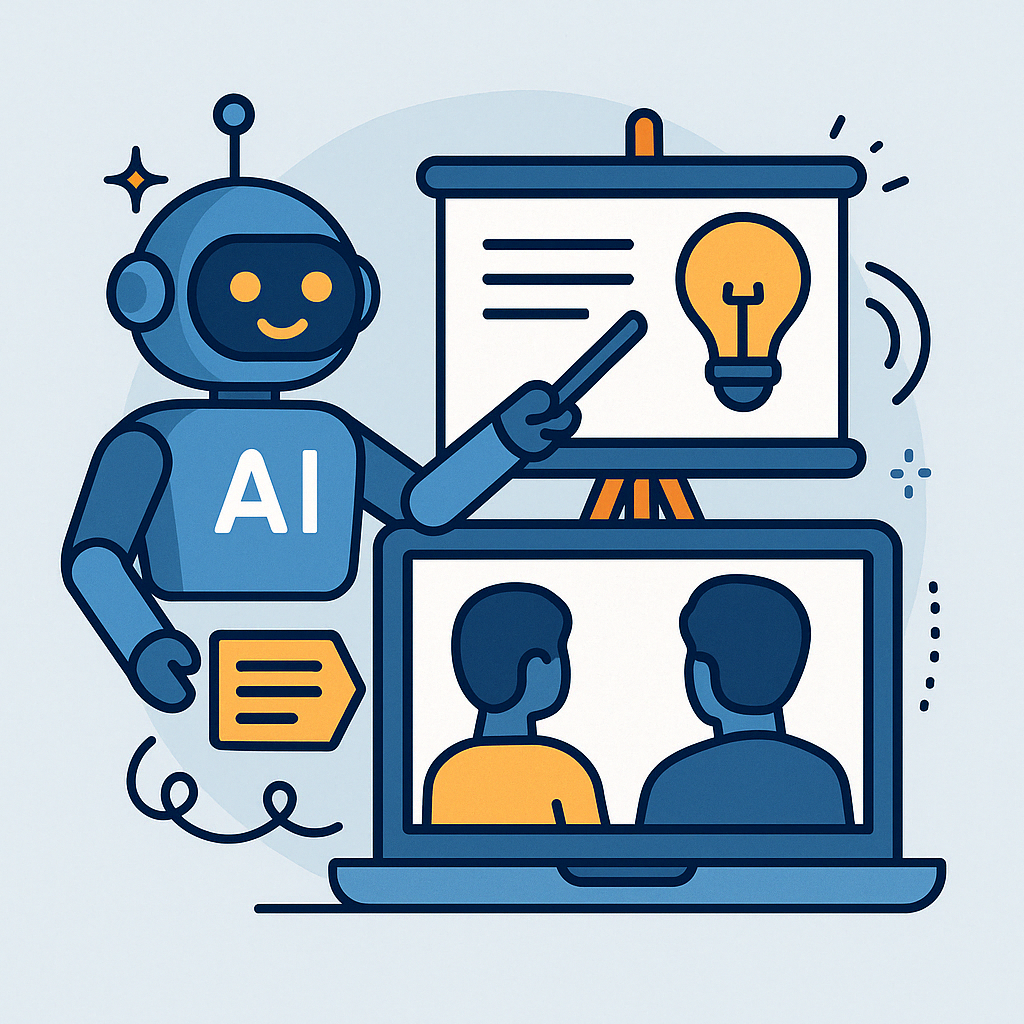AI-3016: Develop Generative AI Apps in Azure AI Foundry Portal
Build and Launch Real-World Generative AI Solutions with Azure AI Studio
Unlock the power of generative AI with Microsoft's cutting-edge Azure AI Foundry Portal. This hands-on course teaches you how to design, build, and deploy intelligent applications using GPT-4, Prompt Flow, Retrieval-Augmented Generation (RAG), fine-tuning, and automated evaluation—all within the Azure AI Studio ecosystem.
What You’ll Learn
Navigate Azure AI Studio: Learn how to create and manage AI projects, model deployments, and prompt workflows in a secure enterprise-ready environment.
Deploy State-of-the-Art Models: Discover how to work with powerful foundation models like GPT-4, Llama 2, and Phi-2, and deploy them within your own Azure subscription.
Use Your Own Data (RAG): Enhance AI responses using your private data with Retrieval-Augmented Generation and data connectors.
Fine-Tune and Evaluate: Train your own variants of foundation models and compare their performance using Azure AI Studio’s built-in evaluation tools.
Ensure Responsible AI: Explore content filtering, safety policies, and model monitoring using Microsoft’s built-in responsible AI tools.
Accelerate with Prompt Flow: Build multi-step generative AI apps that combine prompts, tools, and logic using Prompt Flow visual pipelines.
Who Should Take This Course
Developers and AI engineers ready to bring generative AI into production
Data scientists interested in deploying and customizing foundation models
Technical managers evaluating Microsoft's AI stack for their organizations
Teams seeking a secure, scalable, and cost-effective way to integrate LLMs
Course Format
100% hands-on with step-by-step labs in your own Azure environment
Taught by a virtual AI instructor
No fluff—just real-world implementation guidance
Includes lab exercises on model deployment, prompt engineering, fine-tuning, data integration, and evaluation
- Category: AI and Machine Learning
- Level: Intermediate
- Time Estimate: 10h 30m
- Price: $99 for 3 months of access
- Subscription: $39.99 per month after 7-day free trial
- Lab Environment: Included
- Free Trial: 7 Days

Lessons in this Course

Lesson 1: Introduction to Azure AI Studio
Exercises

Lesson 2: Explore and Deploy Models from the Model Catalog
Exercises

Lesson 3: Use Prompt Flow to Develop Language Model Apps
Exercises

Lesson 4: Build a RAG-Based Copilot with Your Own Data
Exercises

Lesson 5: Integrate a Fine-Tuned Language Model with Your Copilot
Exercises

Lesson 6: Evaluate the Performance of Your Custom Copilot
Exercises

